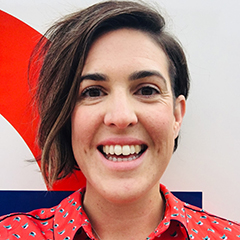Chloe Kitto and Krishna Bakhai describe how the concept of psychological PPE can encourage staff to prioritise self-care
When you think about what you’ll need to work on a covid-19 ward, one of the first images that comes to mind is personal protective equipment (PPE). It’s an effortless association to make because we recognise the viral risk that comes with looking after patients with covid-19 and the need to protect ourselves from it. But what about the psychological risk? Are we as quick to think about our psychological protection? Moreover, how likely are we to prioritise this for ourselves and take action?
At the inception of the NHS Nightingale Hospital in London, our team strongly advocated for psychological preparedness to be included in the induction and training for all the staff working there. The concept of “psychological PPE” grew from there. In April, our colleagues published an article introducing the idea of psychological PPE in the context of workplace culture. After that, over a six week period, our team delivered a 30 minute workshop on psychological preparedness to more than 2000 members of staff as part of the Nightingale’s induction and training programme.
The aim was to prepare staff for the anticipated challenges of working in a covid-19 ward. This is in line with advice published by the UCL COVID Trauma Response Working Group, which recommends that hospitals “provide training on the potentially traumatic situations that staff might be exposed to.” The workshop emphasised to staff the importance of prioritising their own self-care amid a highly stressful environment and practising the skill of self-care. The immediate response from those in attendance was “This is not something we are used to doing.”
As the covid-19 response escalated, we witnessed the rapid dissemination of guidelines and recommendations signposting staff to various wellbeing resources. We suspected, however, that a large portion of the workforce may not take up these resources, or see the need for wellbeing support. We wanted to use our induction workshop to influence this space between signposting and action.
The workshop facilitates open and frank communication, naming vulnerabilities, and developing individualised skills to enhance wellbeing. As well as emphasising the need to monitor your own wellbeing, the session draws on the strength of the PPE analogy to encourage participants to monitor the psychological PPE of others. The example was often given—if you were to notice a tear in your colleague’s glove, you would act calmly but assertively to ensure the breach was resolved. Likewise, if you were to notice a breach in a colleague’s psychological PPE, responding with calm and assertive action is equally important.
The Nightingale induction and training programme taught according to three streams: the green workforce (those experienced in working in intensive care), amber workforce (other medical professionals), and red workforce (people with limited medical experience). The psychological PPE workshop, however, did not change according to the stream and was delivered with a uniform message to all staff.
Early on, we had hypothesised that the red stream would require more support and be outspoken about their concerns due to their relatively little experience with the role that awaited them. Similarly, we hypothesised that the green stream may see less need for psychological preparation—with many of them transferring over from their own covid-19 wards—and be less likely to verbalise stress with peers. In fact, generally speaking, we saw the opposite.
Experienced ITU staff of all disciplines engaged profoundly with the session, voicing early warning signs of stress and sharing the challenges of working within the covid-19 context. Furthermore, the emphasis on looking after yourself and others was strongly embraced by this stream, and this was particularly evident within the familiarity of the PPE analogy. A consistent theme between the three streams was the habit of self-care not being well practised, and of this being influenced greatly by the culture of the workplace.
The diverse nature of the examples that staff shared with us about their self-care practices highlights the need for individualised wellbeing support. The practice of psychological PPE doesn’t negate the need to signpost wellbeing resources, but it can provide a catalyst to move a person to action. Signposting reveals to the individual what options are on the table; but the practice of psychological PPE moves the individual toward the table to take a look for themselves.
As we await the outcomes of our mixed methods evaluation, we’ve been heartened by the promising response to our training and the significant engagement at the local level. We’d also argue that psychological PPE has the opportunity now to reach beyond the scope of the Nightingale Hospital to other healthcare settings and different environments. After all, we’re in the midst of a global pandemic, and mental health leaders have clearly articulated the need for “bespoke psychological interventions to boost wellbeing and minimise mental health risks,” especially for high risk populations.
At the organisational level, the core themes that underpin psychological PPE and the key learning generated from mass workforce training should influence the concerted wellbeing strategies currently being devised across the NHS and beyond. At the individual level, those working within high stress contexts should be given the opportunity to learn about self-care as a skill—one which should be developed, practised, and nurtured within our organisations. For both individuals and organisations, the concept of psychological PPE provides a framework and language for targeting the gap between signposting to wellbeing resources and taking action.
 Chloe Kitto is a specialised occupational therapist at the Royal National Orthopaedic Hospital, with expertise in mental health and chronic pain rehabilitation. Twitter @chloe_kitto
Chloe Kitto is a specialised occupational therapist at the Royal National Orthopaedic Hospital, with expertise in mental health and chronic pain rehabilitation. Twitter @chloe_kitto
 Krishna Bakhai is a GP registrar at Benhill and Belmont Surgery in Sutton, with experience in peer wellbeing support.Twitter @KBakhai
Krishna Bakhai is a GP registrar at Benhill and Belmont Surgery in Sutton, with experience in peer wellbeing support.Twitter @KBakhai
Chloe and Krishna were seconded to the NHS Nightingale London where they led the wellbeing team within the training and induction programme.
Competing interests: We have read and understood BMJ policy on declaration of interests and declare the following interests: We are currently applying for funding to scale up the psychological PPE workshop for wider NHS use. We are NHS employees and were seconded to the Nightingale, initially voluntarily, but as our roles grew we were then paid in line with a standard NHS rate. The PsychPPE training we’ve delivered since has been either for free, or funded by HEE as we are collaborating with them for second surge preparation. We are still awaiting outcomes of our funding application to be able to deliver this training more widely.
Acknowledgements: With thanks to Georgia Twigg, senior occupational therapist, Alexander Margetts, clinical psychologist, Jeanne Hardacre, independent consultant, and Kathryn Thorley, senior occupational therapist.
